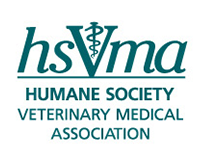An Interview with Dr. Michael BlackwellJune 12, 2012  Michael Blackwell, DVM, MPH Michael Blackwell, DVM, MPH, has a productive and successful career that includes service as dean of the College of Veterinary Medicine, University of Tennessee; as deputy director for the FDA’s Center for Veterinary Medicine; as vice chair of the Pew Commission on Industrial Farm Animal Production; and in various other influential government and advisory roles. He also has worked with animal shelters and run a small animal private practice. He currently is president and CEO of Blackwell Consulting, LLC, and Blackwell Britt & Associates, LLC. He serves on the board of directors of The Humane Society of the United States and is an HSVMA member. In this interview, Dr. Blackwell discusses how his experiences have shaped his involvement in animal welfare issues and what he believes the role of the veterinary profession should be in promoting improved animal welfare. HSVMA: You bring a unique and varied background to your new role as a member of The Humane Society of the United States Board of Directors, including service with the government, academia, shelters and private practice. How do you see your experiences shaping your involvement with The HSUS? Dr. Blackwell: First and foremost, as a veterinarian, it is important to me to help shape the present and future landscape of what is animal welfare. I try to understand many of the competing interests and priorities that must be addressed, and the animals deserve a commitment from our profession. My government and public health training and experience enables me to appreciate why there must be an HSUS with people who understand why we cannot ignore the issues of animal suffering and abuse, especially in production agriculture, because of the public health implications. When animals lose, people lose. Is there any one issue or campaign that HSUS is involved with that you would consider your top priority? Food animal health, especially as that is threatened by mechanized and industrial systems that can and do threaten public health and environmental safety. HSUS is the most capable organization to influence our direction as a society. As vice chair of the Pew Commission on Industrial Farm Animal Production, you made some strong statements arguing against the non-therapeutic use of antimicrobials in food animal production. How do you feel the veterinary profession should help address this issue? Our profession needs to accept our critical public health mission, that being the prevention of morbidity and mortality in humans, by ensuring animals are healthy and do not threaten the health of people. There is always that critical connection between humans and animals, especially where animal derived food is concerned. We remain the only significant medical or public health profession worldwide that has not taken a formal and strong position to reduce the use of non-therapeutic antibiotics in healthy livestock for growth promotion and feed efficiency . Now why is that? I believe it is because of the very small number of veterinarians who continue to influence the AVMA’s position regarding food animal medicine. Our small animal and equine veterinarians often feel unqualified to push for changes in the area of food animal medicine. They need to step up and use their scientific training and understanding of antimicrobial resistance and ask themselves if we should be more proactive in bringing about change. If the small animal practitioners take a position that change is needed, it will happen. If they don’t, I am afraid others will have to do what veterinarians are currently not doing.
As a former veterinary school Dean, how much do you think the new Shelter Medicine programs have affected the veterinary school curriculum? What, if any benefits have these programs provided to veterinary students and veterinary education? Shelter medicine in most veterinary school curriculums is either nonexistent or barely taught. This is due to the longstanding problem of a dense curriculum and the unwillingness of faculties to either reduce the content and time demand of certain courses, or go to an entirely new model involving specialization. Now to do that, State Boards must also change their model of licensure. What I believe is most needed is to incorporate shelter animals in the teaching of basic medicine and surgery. The shelter I am affiliated with, Young-Williams Animal Center in Knoxville, Tenn., last year took in more than 15,000 animals, most of whom needed a basic examination, basic preventative medical care such as deworming, vaccinations, and diagnostics like heartworm and fecal examinations. Hundreds of dogs and cats needed to be spayed or neutered. If students were involved in addressing these needs, they would learn general veterinary medicine with very real-world cases. Why do I think this is important? Well, the teaching hospitals are seeing mostly “zebras” due to the number of specialty practices, and “community practices” tend to have a limited and non-representative population of cases. Shelters can provide just about any kind of medical problem one would want when teaching veterinary medicine for general practice.
How do you think shelters and private practitioners can work together to address the problem of companion animal overpopulation and the euthanasia of an estimated three to four million cats and dogs in our nation’s shelters each year? There is no single answer to this. However, if there was more of a commitment among private practitioners to address this problem in their community, we would see those numbers drop dramatically in just a few years. A good starting place is for private practitioners to at least not object to low/no-cost spay-neuter programs. This includes not making it unnecessarily difficult for such businesses to be established and operate. Even better would be proactive efforts by practitioners to work collaboratively with spay/neuter organizations to help reduce euthanasias. Looking beyond the shelter environment, what do you see is the role of the veterinary profession in promoting improved animal welfare in the community, particularly in underserved areas where there is often restricted access to veterinary care? We claim to be advocates for animal welfare, yet in all of the years we have been an organized profession, we have yet to provide options for the pet owner who is poor. Many poor people love their pet as much as anyone else. In some cases, that pet is the most significant being in that person’s life. However, we are still primarily a cash only, pay as you go profession. This fundamentally shuts out a large sector of animals from adequate health care. There is a lot of discussion about access to healthcare for humans, yet our profession almost never brings up the subject. There is a huge access to healthcare issue in veterinary medicine, and it is getting worse. If we do not build such a system, then who will?
HSVMA was created in 2008 to provide a home for veterinary professionals who are interested in animal welfare issues and who want to aid animals in need. As an HSVMA member, what do you perceive is the most important role for the organization in helping the veterinary profession promote the welfare of animals? HSVMA must take the lead as an affiliate of HSUS to help define animal welfare from the perspective of trained veterinary professionals. The veterinary profession cannot do this by riding on the back of the bus while laypersons are driving the bus. Rather, we need to take control of the steering wheel to ensure that there are balanced, reasonable and educated voices speaking for the needs of animals. You’ve had a very successful veterinary career. What one piece of advice would you give to graduating veterinary students as they start their careers today? You are among the most intelligent citizens in our nation. The nation needs you to get involved to help us improve. As long as your motivation is to help others, especially animals, you will benefit beyond your wildest dreams. |
